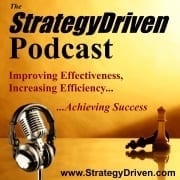Performance Appraisals – Can They Really Be ‘Stress-Free’?
Performance appraisals are one of the most important responsibilities of a supervisor… and one of the most dreaded!
Why?
Perhaps the better question is – What can we do to remove the ‘dread factor?’
One way is to identify the five most important tips and make sure all your managers get a copy.
Tip #1 – Take time to prepare
Start by familiarizing yourself with the form and the ratings. Think about the goals each employee has been working on, the employee’s strengths and areas for development. Pull out all the examples and observations you’ve collected throughout the review period and add them to the appraisal form to support your ratings.
Plan your discussion in detail – not just compliments, but also areas for improvement.
Then, schedule the meeting and plan enough time for a thorough discussion. Select a time when you and the employee are not under pressure.
Hi there! This article is available for free. Login or register as a StrategyDriven Personal Business Advisor Self-Guided Client by:
Subscribing to the Self Guided Program - It's Free!
About the Author

and The Essential HR Handbook
, is the Founder of Sharon Armstrong and Associates. Sharon has served as director of human resources at a law firm and several other organizations in Washington, DC. Since launching her own consulting business in 1998, she has provided training and completed HR projects dealing with performance management design and implementation for a wide variety of clients. To read Sharon’s complete biography, click here.








Performance Assessments/Reviews:Stress Free Employee Accountability. It’s amazing that such dinosaurs (performance review systems, not the people) are still around. Yet despite the outcry against reviews, there’s nothing wrong with them that can’t be fixed by getting managers off of center stage. Top management can fix the basic problems the review system faces.
Critics argue that performance reviews not only don’t accomplish what they’re supposed to do – that is, improve performance, enhance employee skills and achieve planned outcomes – they have unintended negative consequences. In many cases, unfortunately, that’s true. But it doesn’t have to be that way. What companies need to abolish is not performance review itself, but the idea that it’s a “management tool. Here are some practiced paradigms that must be discarded:
Performance Review is designed, as the name suggests, in support of managers. If you believe this, your management is one of the roadblocks to exceptional performance. The most useful performance review support work relationships between employees (managers too are employees). Both parties need to address the question of how to best serve the goals and outcomes and align their work efforts.
Performance review is a management tool. Managers are not necessarily the best qualified to assess their staff’s accomplishments. In fact, they may have a very limited or biased view. A more complete and accurate picture results when employees and managers seek feedback from a variety of customers, team leaders, professional peers, and others inside or from outside the unit.
Performance reviews include judgments from a “higher authority”. Judgments produce compliant workers – people who are told what to do – not innovative ones. People hate performance reviews because most of them are fault-finding. How much better to ask, “What did we learn from this? What can we each do different the next time?”
The manager is responsible for obtaining input from the employees. 21st century employees can’t assume a passive role in performance review, providing “tough-minded” self-assessments and valuable insights only on request. They must take the initiative, soliciting feedback from their managers and others. No risk taking to solicit the complete picture and no learning means no improvements.
Managers should be trained in performance reviews, then prepare their employees for the process. If performance review is to be a productive partnership with employees taking the active role and both parties committed to exchanging knowledge and ideas, managers and employee need to be trained together.